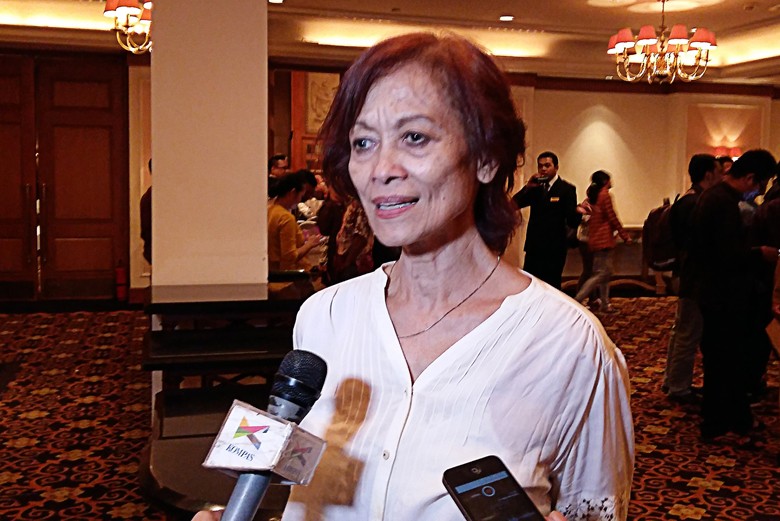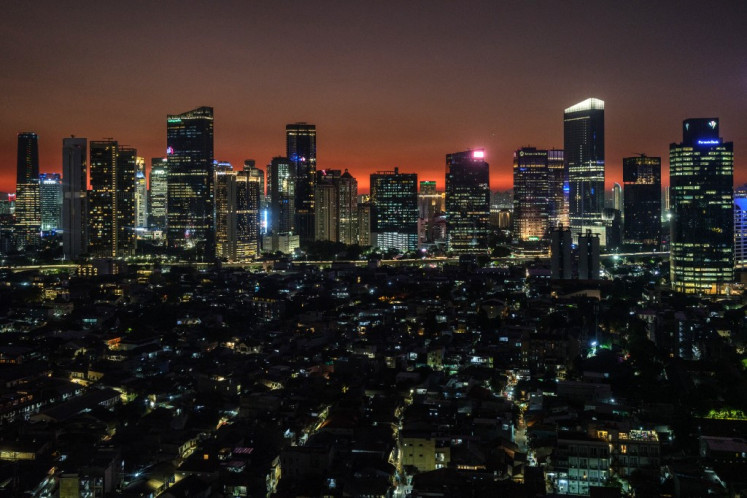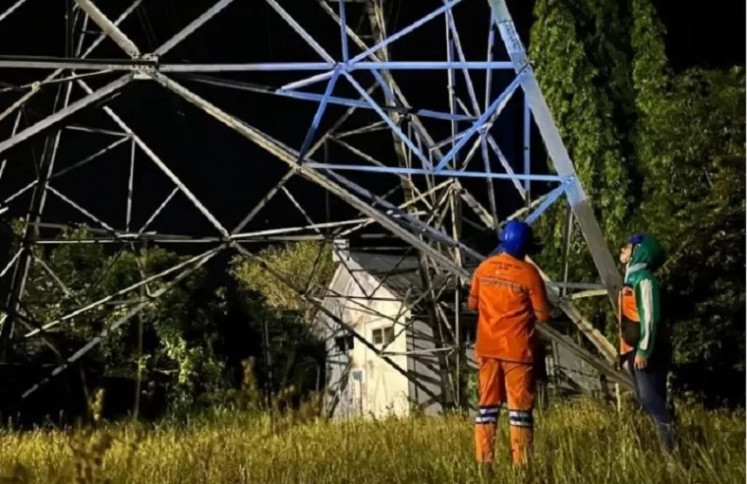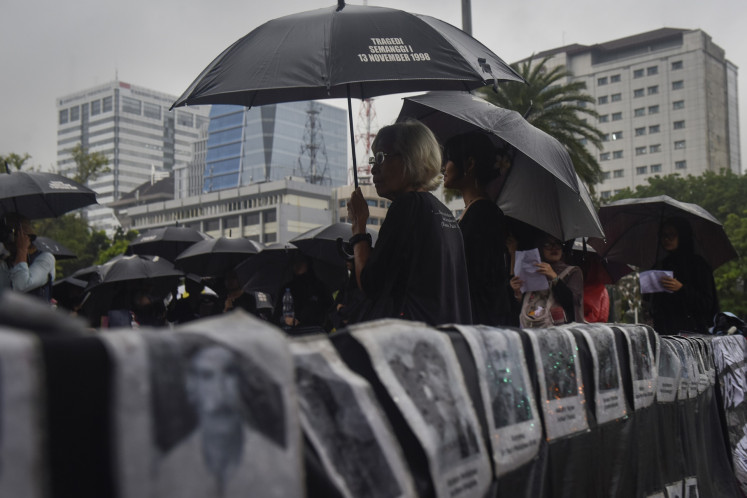Popular Reads
Top Results
Can't find what you're looking for?
View all search resultsPopular Reads
Top Results
Can't find what you're looking for?
View all search resultsTruth, reconciliation and justice
Many serious cases of human rights violations have lingered in the wild with no real prospect of resolution.
Change text size
Gift Premium Articles
to Anyone
 Revealing the truth – Catherine Pandjaitan, the daughter of Donald Isaac Pandjaitan, one of six military generals murdered on Sept. 30, 1965, speaks to journalists on the sidelines of a symposium on the 1965 anti-communism purge reconciliation in Jakarta on Monday. (thejakartapost.com/Anton Hermansyah)
Revealing the truth – Catherine Pandjaitan, the daughter of Donald Isaac Pandjaitan, one of six military generals murdered on Sept. 30, 1965, speaks to journalists on the sidelines of a symposium on the 1965 anti-communism purge reconciliation in Jakarta on Monday. (thejakartapost.com/Anton Hermansyah)
A
new presidential team tasked to look into nonjudicial resolutions to serious cases of past human rights violations may just be what the country needs to break the impasse, with a caveat: It should not preclude the pursuit of justice in court, even if it takes forever.
President Joko “Jokowi” Widodo in his annual state of the nation address on Tuesday said he had signed a decree to set up the team. As of Friday, the text of the decree had not been posted on the State Secretariat website, leaving many to second guess its content and intentions. Not surprisingly, human rights groups quickly screamed “impunity” saying that the decree would relieve those culpable for the human rights atrocities.
Many serious cases of human rights violations have indeed lingered in the wild with no real prospect of resolution.
The oldest is the 1965-1966 massacre of communists and their sympathizers, with up to one million or more killied, no one knows for sure. Nearly six decades later, even as most if not all the perpetrators are dead, the nation has yet to come to terms with the darkest page of its history since independence in 1945.
Nonjudicial resolutions, perhaps an admission, an apology or even compensation for victims, could be the next best to having nothing, especially in this particular case as the window of opportunity to establish the truth is closing. Ditto with many other long-past human rights atrocities since then.
It isn’t clear whether the new team is set up to replace or to complement the work of the Truth and Reconciliation Commission (KKR). President Jokowi has promised to set up such a commission through a legislative process, but the draft of the bill has not even reached the House of Representatives.
Nor it is clear the scope of the team, whether it would pick the 12 cases of serious human rights violations that the National Commission on Human Rights has looked into. The 12 include the 1965 communist massacres; the raids against a Muslim community in Talangsari, Lampung; the forced disappearances of antigovernment activists in 1997-98; the 2004 murder of human rights activist Munir; the 1998 Jakarta riots with racialist overtones and at least three violent incidents in Aceh and two in Papua.
In 2000, then-president Abdurrahman Wahid ordered the creation of the law to set up the Truth and Reconciliation Commission. The law was enacted by the House of Representatives in 2004, but it was rescinded as soon as Susilo Bambang Yudhoyono took presidential office in October that year, citing problems in the wording of the legislation. But is it a coincidence that Yudhoyono’s late father-in-law, Lt. Gen. Sarwo Edhie Prabowo, had led the killing campaign against communists in the 1960s?
In 2015, 50 years after the communist massacres, human rights groups campaigned to bring closure by organizing public discussions, encouraging people to speak up to help establish the truth. The campaign was abruptly stopped by the government.
The fact that the search for truth is taking so much time is an indication that powerful groups connected to these acts of violence will have none of this national guilt trip, making sure that these cases never come to light.
This is why we think Jokowi’s new team should be given the chance to work to consider non-judicial resolutions. But let’s be clear: the establishment of the truth as far as it can be obtained should still be part of the team’s job. You cannot find a resolution unless you establish what really happened, as painful as the process of truth-seeking may be.










